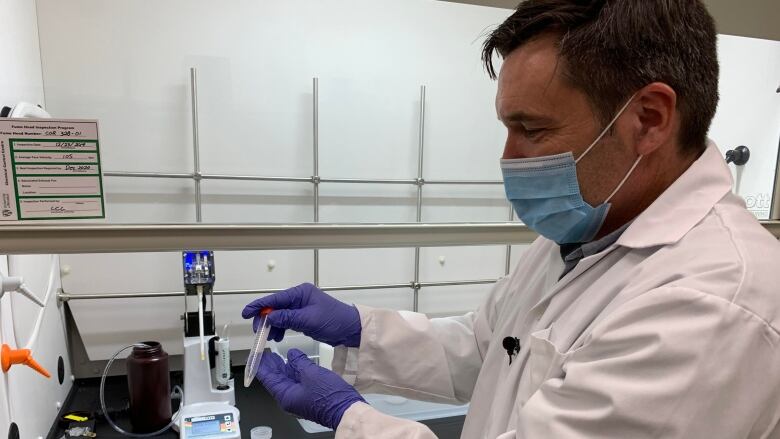How waste water testing provides an efficient way to predict public health
Waste water is a crystal ball giving us a look into the future when it comes to illnesses

As the holiday season and cold weather settles in, illness abounds in the community.
During the lead up to the holidays, public health officials in Windsor urged the public to get vaccinated, stayhome when you're sick and continue to be vigilant against COVID-19 and other respiratory infections.

"Heading into the holidays, everyone can play a part in helping to prevent the spread of respiratory illnesses," Dr. Mehdi Aloosh, medical officer of health for the Windsor-Essex County Health Unit, said in a statement.
Currently about 11 per cent of the Windsor-Essex population is up-to-date on their COVID-19 vaccines.
Quick responses
Mike McKay is the director of the Great Lakes Institute for Environmental Research.
He told Windsor Morning's Amy Dodge that waste water analysis is crucial in determining public health outcomes going into the colder months.
"It relies on people getting tested or thresholds for people who are eligibleto get tested."

The community benefits
Though wastewater testing is relatively new, it provides a more efficient and rounded view of community health.
Aloosh called it "one of the crucial tools" in tracking and monitoring infectious diseases.
"By collecting and testing sewage samples, experts can detect specific diseases, providing valuable insights into community health trends over time," he said.
"This approach is especially valuable when faced with limited laboratory testing, offering a non-invasive and cost-effective means of monitoring disease activity."
"Those are really underreported diseases," McKay said. "That's where waste water testing is really showing its potential benefit to public health because without the testing we would have very little information on the trajectories of those diseases in a community."
"If there was cause for more concern in the community, [such as] a new variant, we could certainly increase the frequency."
"It's still not too late for people to get their flu shots."
With files from CBC News












_(720p).jpg)


 OFFICIAL HD MUSIC VIDEO.jpg)
.jpg)



























































































